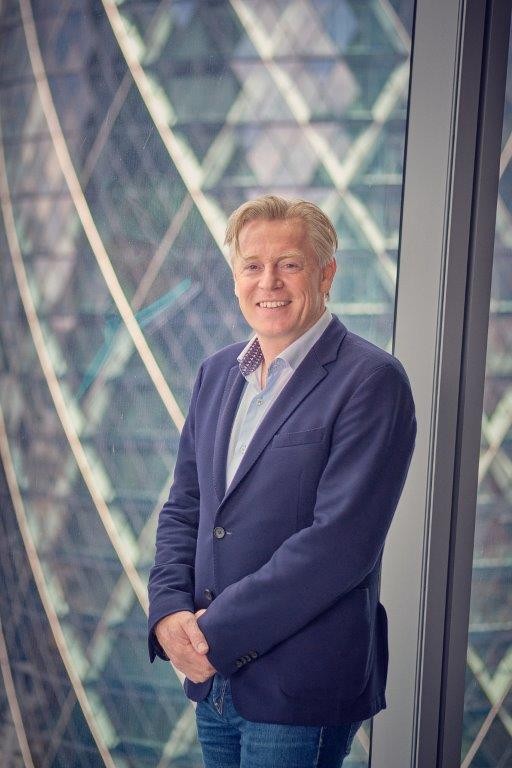Just as businesses transitioned into de-facto technology companies to remain competitive and appeal to an ever-demanding customer base, so too are they embracing sustainability action. What was once considered a ‘premium’ business option - a strategy to explore should an organisation have the resource to tackle its environmental footprint - has now become a necessity. Fundamentally, businesses have had to embrace the new agenda or quickly fall behind their peers and fall foul of changing regulation.
That’s why we now see year-round planetary commitments from businesses in different sectors; goals and objectives are no longer tied to big events like COP or ICSD because they cannot afford to be. As many as 87% of consumers want brands to act now to encourage future sustainability, so the demands are not just widespread, they are immediate. Yet, while a desire to drive change at pace is promising, we’ve found that businesses are unclear on where the responsibility lies for sustainability action. In fact, 34% of UK businesses believe it’s the CEO’s responsibility, while 22% say it’s the Chief Sustainability Officer.
But are we fundamentally missing a trick by taking such a narrow view on accountability?
An internal & external spotlight on action
For many, this year’s COP26 was another reality check. Despite the commitments made under the Paris Agreement in 2015 to limit the planet’s temperature rise to under 2C, scientists explained that this is likely to be missed unless stronger action is taken. More than just words, missed targets could translate into rising sea levels, global heatwaves and permanent disruption. As a result, there’s both a public and employee spotlight on how businesses respond.
Many across enterprise technology, healthcare, retail and manufacturing, are rightly setting themselves ambitious targets. Commitments to be completely carbon neutral, pledges to contribute to the circular economy and policies to track supply chain footprints are now permanent fixtures on quarterly or yearly earnings, annual reports or in product roadmaps. But the scale and significance of the task ahead means that no one stakeholder can bear the burden and enact the change required.
With such significant attention on the green agenda, resting the weight of sustainability transformation on the shoulders of one individual or including it as a ‘part-time’ responsibility of an employee will inevitably lead to underwhelming results. In turn, this could lead to accusations of green-washing and reputational damage.
A collective call to action
Instead, responding to this urgency requires a cohesive, united plan of action. It’s no longer enough to rely upon a small pool of employees to drive, inform and implement widespread change. Meeting these ambitious targets will only be possible if they are accompanied by a top-down mentality to change alongside a groundswell of employee support. Ultimately, responsibility for change needs to fall under the remit of the entire workforce, not just one individual.
At the heart of this is ensuring that the sustainability function is not siloed from the rest of the business, acting as its own separate entity with different KPIs or activations. To be successful, it needs to permeate the wider business and encourage others to embrace a ‘sustainability by design’ mindset with new policy, direction and solutions. At first, this might mean that meetings should have a dedicated sustainability champion, whether that is the CEO or Chief Sustainability Officer, as outlined
in the above research, or another individual, who knowledge-shares, coaches other employees and ensures the business is on track against its targets.
At SAP, we are determined to be both an exemplar and enabler of environmental best practice. That’s why we have dedicated sustainability teams that are omnipresent throughout the business, keeping us honest and on-track against targets. It’s through their influence that we’ve been able to expedite our carbon-neutral ambitions to the end of 2023, bringing it forward by two years. These teams have also driven our partnership with The Carbon Community to plant the SAP Forest UK in the Brecon Beacons and support research to make carbon offsetting more efficient.
Their position at the heart of the business is also helping our customers and partners to successfully transform their businesses into intelligent, sustainable enterprises. For instance, it’s only through our sustainability champions that we could launch the COP26 Waste Insights Project with Topolytics, Coca-Cola, DS Smith and Brewdog to better understand the product lifecycle and demonstrate to customers how to best reduce waste. But extending beyond waste reduction, the value we place on sustainability has meant that we’ve accelerated our product roadmap, empowering our customers and partners to track the environmental footprint of a product through its entire lifecycle via Product Footprint Management.
Empowering all employees to lead the charge
With an organisation’s sustainability credentials closely tied to its reputation, it’s critical that leaders get the planning and approach right. Failure to do so, could leave them at risk of being figuratively cast into the wilderness by customers, partners and the wider public. Businesses must plan through both a short- and long-term lens, understanding how structuring sustainability plans now can ladder up to making a real impact and hitting objectives.
At the very heart of this is empowering all employees, from the C-suite to entry level graduates, to feel accountable and think holistically about how business processes, products or solutions can support the planet. Dedicated sustainability champions or functions are an important piece of the puzzle, particularly in the short-term, raising awareness of issues, measuring business performance, and setting strategy. Employees must feel able to not just learn from them but put it into practice too.
Ultimately, the end-goal must be for the entire business to feel appropriately equipped to take ownership for action, and in turn, sustainability leaders should find that they take on a more consultative role without sole responsibility to address climate change.




